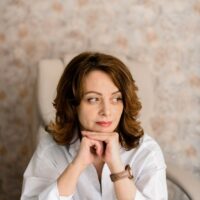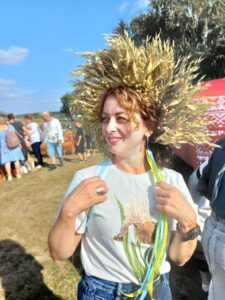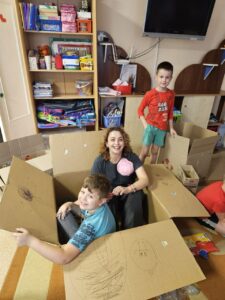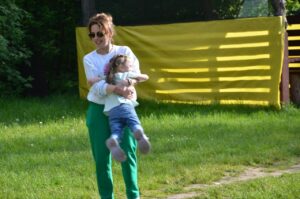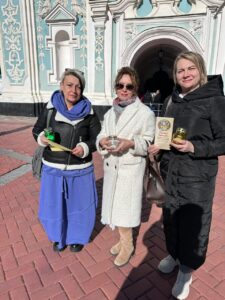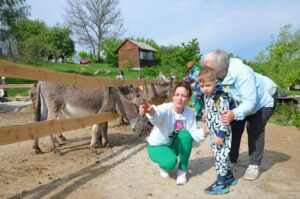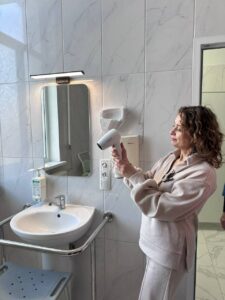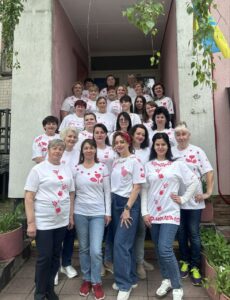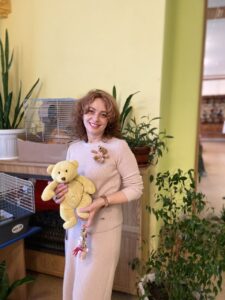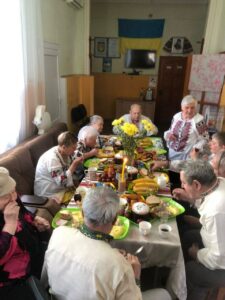“Love begets love.” Interview with Oksana Vasylivna Herasymchuk – a woman who did not break
She lost her daughter, created an online kindergarten during the war, and became the head of a social welfare center. Her life has seen it all — pain, darkness, despair, and a miracle. But above all, what remained was love. And it is love that transforms loss into strength.
Oksana Vasylivna is the head of the community’s territorial social welfare center in the city of Obukhiv. Previously — a nurse, caregiver, and educator.
She belongs to those Ukrainian women whom the war has made even stronger: instead of retreating into her own pain, she created a space for others — for children, for the elderly, for veterans, for women who have lost loved ones.
This interview is not only about her. It is about many Ukrainian women who are learning to hold up the world while it trembles.
And for Polish readers, this conversation is an opportunity to hear the voice of Ukraine — a voice that does not scream, but quietly and with dignity says: we are alive, we are holding on, we are grateful.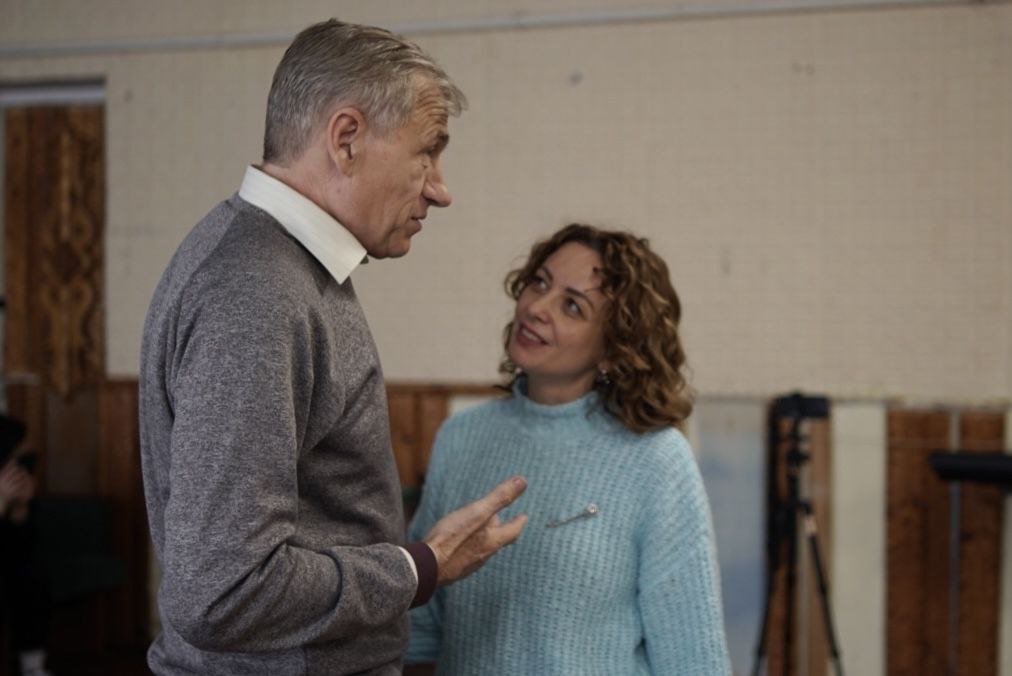
How would you describe yourself in a few words today?
– I’m quick to make decisions and always listen to my heart. Sometimes that’s not very good, but I can’t do it any other way. It’s important for me to feel — myself, people, life. I love life and value everyone who’s around me. Because I believe: there are no coincidences.
What was your first calling in life — to help or to teach?
– To help. Even as a child, I would use my pocket money to buy brilliant green antiseptic to treat stray kittens. The desire to be close to those in pain was already forming back then.
You started as a medical professional. How did you end up in education and then in social welfare?
– Since childhood, I dreamed specifically of becoming a midwife. Although I was a sickly child and often stayed in hospitals, the nurses seemed to me like radiant, almost magical women. They brought peace and hope — and I decided then: when I grow up, I’ll become one of them. So after school, I didn’t even consider other options.
I worked in a maternity hospital, in neonatal intensive care. I entered the field of education thanks to my children — my son Mykhailo and my daughter Polina. It was a decision that saved me from hopelessness and the despair of loss.
My daughter was a child with severe developmental disabilities, and I cared for her at home for ten years. But when my son turned five, I fell into a deep depression. That’s when my husband insisted I go back to work — even if just for a few hours. I came to the “Dudaryk” kindergarten to ask for a job as a nurse, but they didn’t hire me. Instead, they persuaded me to try being a caregiver in the nursery group.
Six months later, my Polina passed away. And I stayed in early childhood education — not for a few hours anymore, but for 15 years.
I worked as a caregiver, and in 2020 I became the head of the preschool education institution “Rushnychok.”
I came into the social sector through an unfulfilled dream — to create a day center for young people with mental disabilities and impairments. Because I know how important it is to have a space where you are accepted, understood, and supported. I believe that every community should have such a place — for those who are left alone with their grief.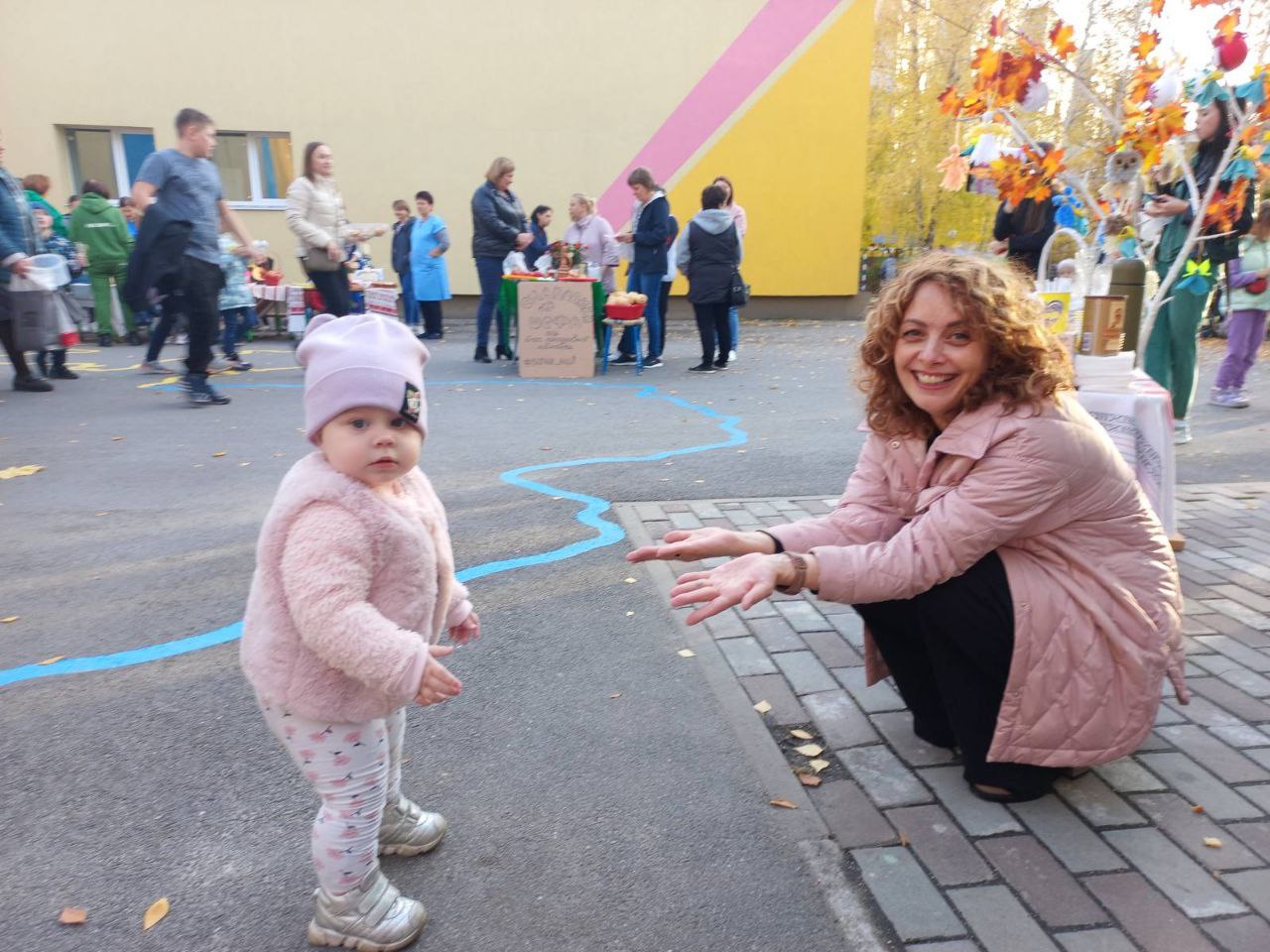
What moment became a turning point in your life?
– The death of my child. But it was precisely that loss that taught me not to run away from the pain of others. Because I was saved then — by family, colleagues, even strangers. And I decided: I must give back to the world in the same way.
What does the word “inclusion” mean to you in real life, not in documents?
– For me, inclusion is not just a word. It’s definitely not about a ramp, or audio assessments, or sign language interpretation.
Inclusion is about equality, mutual respect, and complete acceptance of differences. Because we are all absolutely different — and that is the true beauty of our world.
How do you teach your staff and caregivers to see each person with love, not pity?
– I’ve been lucky in life to be surrounded by people with full hearts. They seem to be drawn to me on their own.
I believe that a person shares with others what they are filled with inside.
I love life, children, my work, the nature around me, music, books — and myself: not perfect, not exemplary, but real.
I don’t need to be pitied. I respect every choice I’ve made and all the feelings I’ve had.
Love begets love. And that is a beautiful thing.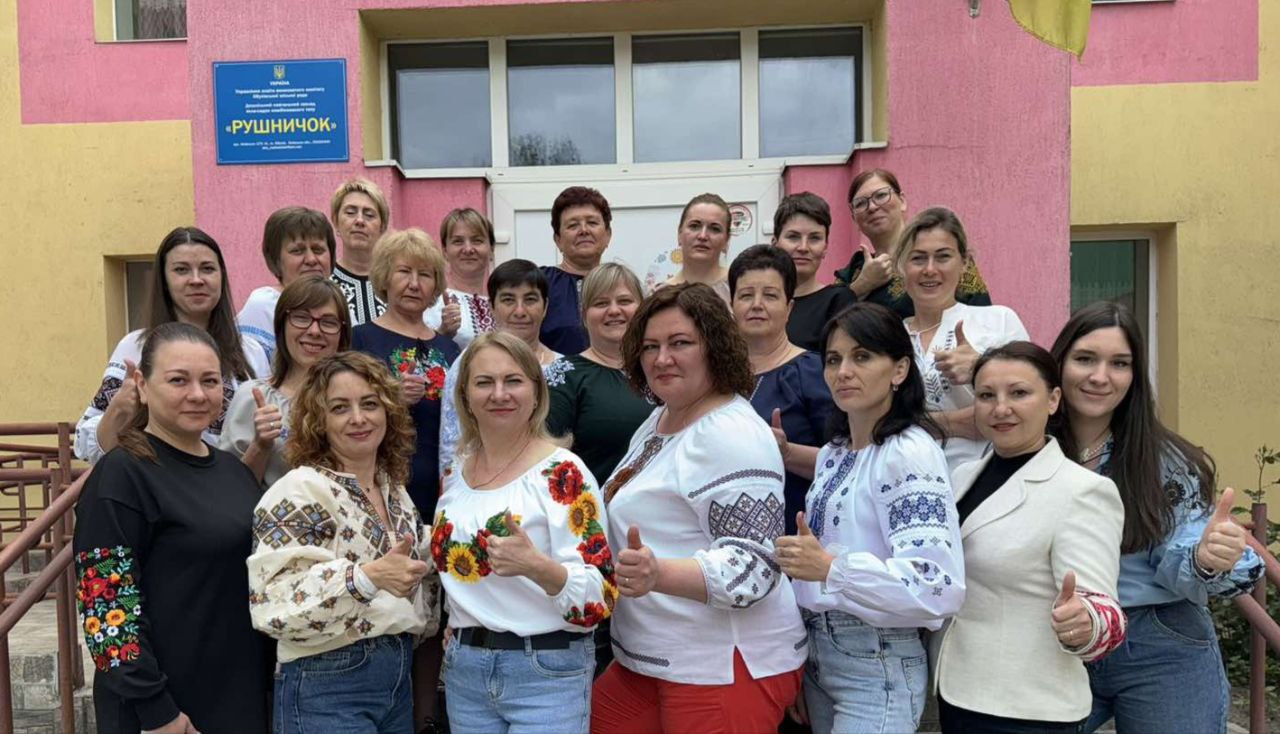
How did you spend February 24?
– At home. At first, I simply couldn’t believe it had happened. I called my relatives — my mother was crying and begging me to come. I stood by the window, watching the endless line of cars moving along the Kyiv highway, and suddenly felt: I must stay.
My husband, son, dog, and I quickly packed our things, documents — and instead of leaving home, we went to “Rushnychok.” We lived there for two weeks: we fed our soldiers, took in displaced people, and simply stayed close to those who were afraid.
Later, I realized that this decision saved our lives. Because those who left that day on the Zhytomyr or Warsaw highways — never returned.
Where did you find the strength not only to endure but to create an online kindergarten and a volunteer movement?
– The online kindergarten “Obukhiv” was born from the idea of staying together — despite obstacles, distances, and borders. At that time, it was important to support the children, who had it the hardest in those first months of the war. We wanted them to feel joy and safety again, even if only through a screen.
We held the first broadcast on March 19, 2022. We managed to unite educators from all kindergartens in the community, involve students and professors from Zhytomyr Ivan Franko State University, as well as many caring individuals. We created a full schedule of classes — in music, speech development, math, creativity, and physical activity.
Over time, we gained about 1,500 subscribers. People watched us not only in Ukraine but also in Europe and even the United States. It was an incredible, powerful team experience — proof that love and support can overcome any distance.
And from that online project, our volunteer movement naturally grew. We supported each other, helped our military, and simply did everything we could. Because to act — meant not to be afraid.
Do you remember the first day you and your colleagues started making trench candles?
– Yes, I remember it very well. It was October 25, 2022 — the day of the first massive missile attack on the Kyiv region.
We all came to “Rushnychok” that day. Almost the entire staff. No one could stay home. And when we started making trench candles, it became something more for us than just helping the front.
That activity turned into a kind of therapy for fear. Each candle was like a prayer, an action instead of helplessness. We worked in silence, listened to the explosions — and held on together.
Why do you think women have become one of the pillars of the home front?
– Because a woman, by her divine nature, is created for endurance and patience.
A woman’s strength lies in the ability to bend but not break. In the capacity to support, to lead, to be both vulnerable and unbreakable at the same time.
It is a strength that comes not from armor, but from love.
Is there a story you still can’t forget — from families of soldiers, children, or mothers of Heroes?
– There are many such stories. But one I always remember.
My acquaintance, Lilia Tarasenko, told me how the birth of her twins saved her husband and his comrades from certain death. They were supposed to go on rotation, but stayed home because of the delivery.
And there are countless such stories. All of them prove one thing: in this life, there is always room for a miracle.
What was your first impression of the Territorial Center in your early days there?
– When I first came there, it was a gloomy, cold place — a building without a soul, without feelings.
Empty walls, silence, air that felt frozen. And I realized: I needed to start with color, with light.
The first thing I did was paint the walls. And on one of them, I wrote a big word: “Values.”
That’s how life appeared in that space.
What changes have you already managed to implement?
– I always follow the rule of “small steps.” It’s those that lead to big changes.
So far, I’ve managed to revive the University of the Third Age, renovate the bathrooms and showers in the elderly care home in the village of Hermanivka, and launch a mobile team to support survivors of domestic violence.
We’ve also created a reintegration program for our Defenders and their families.
Tell us about the “social taxi” — how does it work and who does it help?
– The social taxi is an opportunity for low-mobility residents of our community to reach socially important institutions: hospitals, the administrative service center, city council, pension fund, and so on.
To use it, one simply needs to contact our social manager in advance and provide the route.
The service is free for people with Group I disabilities; for other categories, the cost is 175 hryvnias per hour.
The vehicle is equipped in full compliance with all accessibility and barrier-free requirements — and that is something we are very proud of.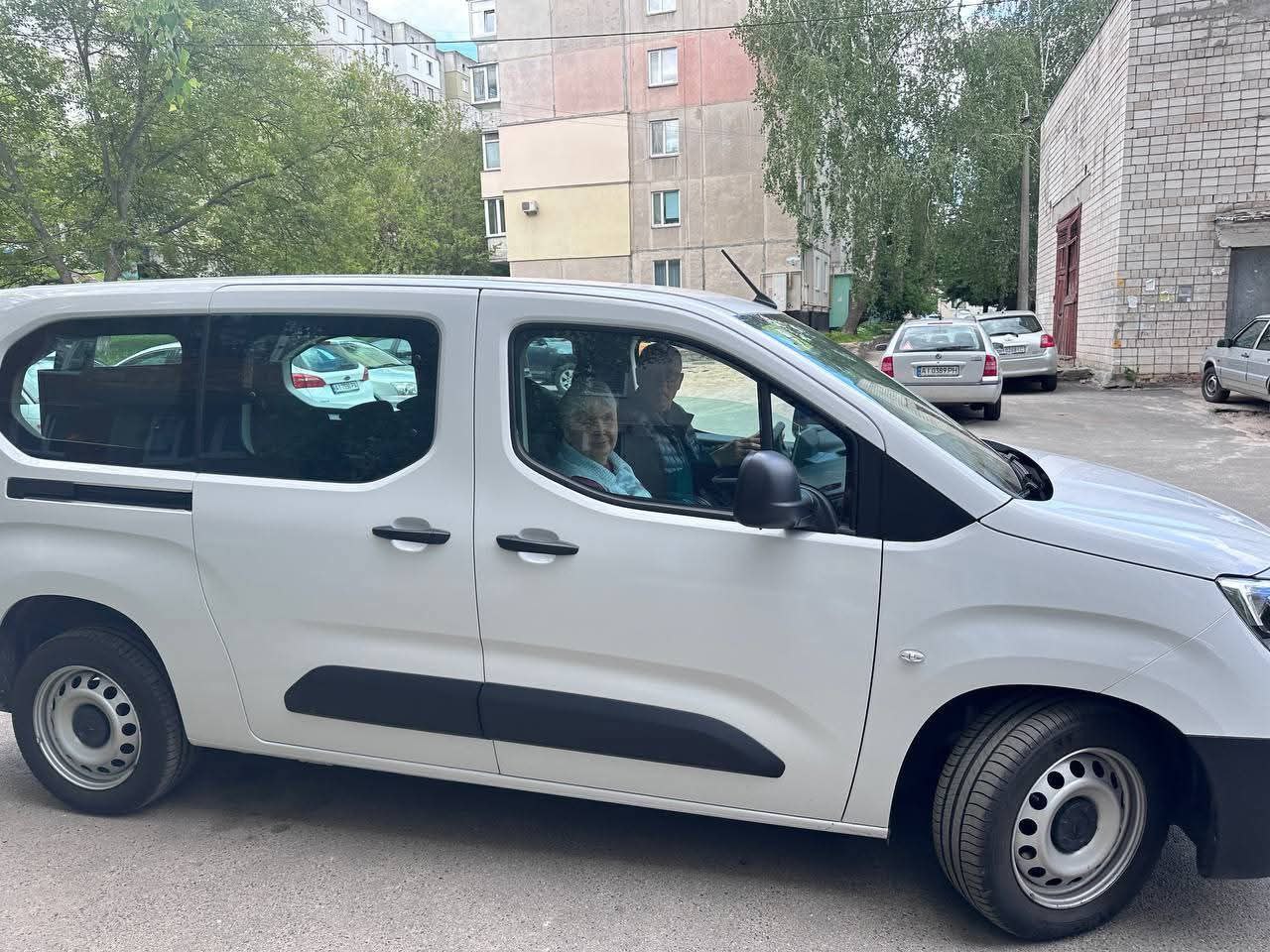
Do you have a favorite example where the center truly changed someone’s life?
– One Monday, during a visit to the residents in the inpatient care unit, I heard words from an elderly woman that I will remember forever:
“I want to thank everyone who made it possible for me to live out my days with dignity and respect.”
It was painful, but at the same time very necessary. Moments like that remind us why we do this work.
What programs are currently in place for veterans and families of the fallen?
– Our community has one of the most comprehensive social programs — “Turбота” (“Care”).
It includes mobilized personnel, veterans, active service members, and families of the fallen.
There are also medical guarantee programs used by our Defenders.
We’ve implemented a reintegration program — it focuses on support, psychological assistance, meaningful family interaction, and restoring trust.
How does the community respond to events dedicated to fallen defenders?
– Our community is learning to live with pain while creating its own ways to honor fallen Heroes.
When a defender is brought home on a shield — the entire town stops and kneels.
Every month, we hold remembrance events on the Alley of Heroes.
And children in kindergarten, upon hearing the anthem, place their little hands over their hearts.
This is how a habit is born — one that shapes dignity for life.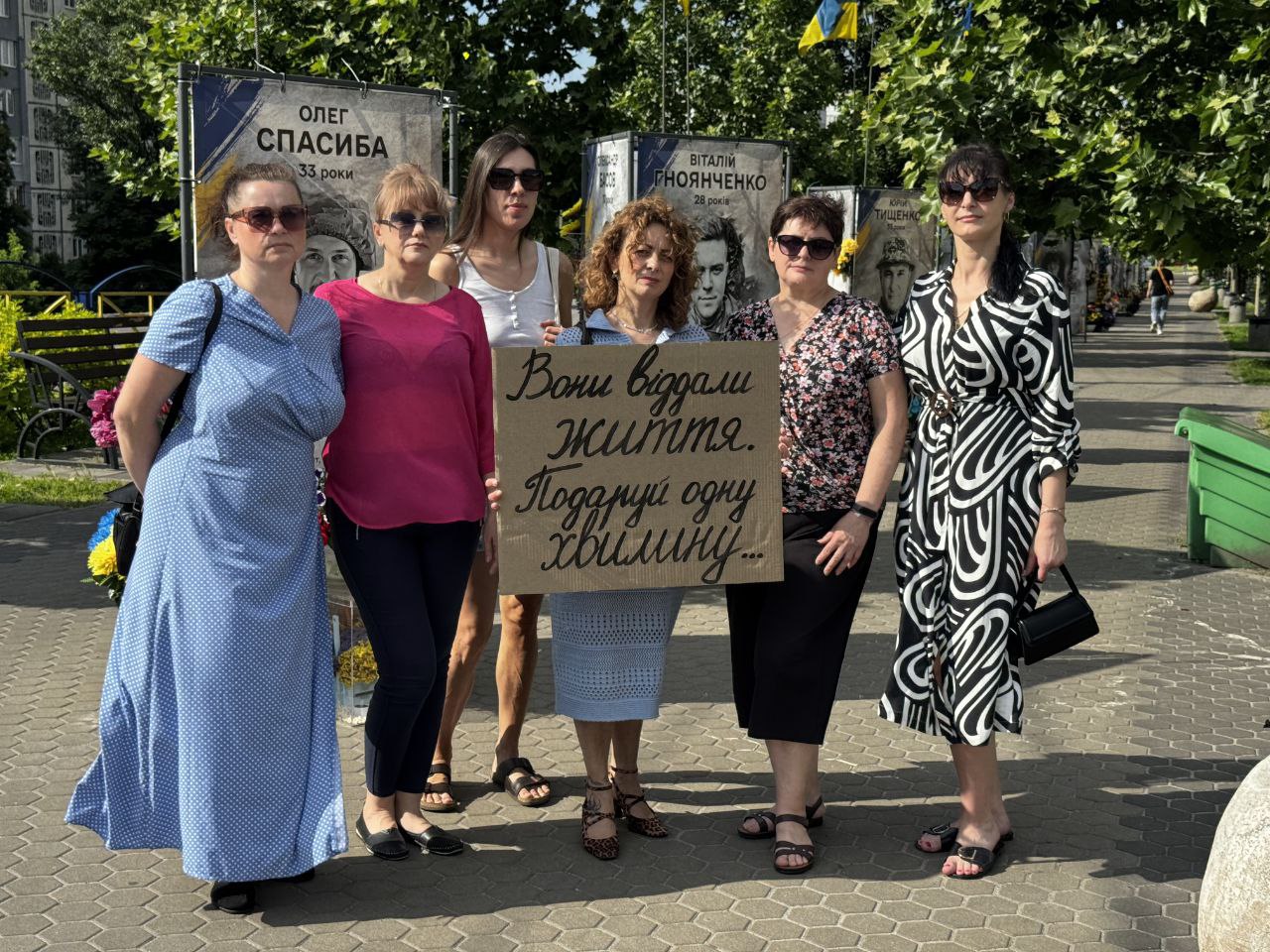
What do you think military families need most today — money, attention, or simply human warmth?
– Sometimes, it takes very little — just being there.
Holding a hand, listening, giving a hug.
The value of such simple actions is immeasurable.
How does the Territorial Center provide psychological support?
– We already conduct individual psychological sessions for the wives of our Defenders, and for families of the fallen and those missing in action.
Our psychologists also work with acute conditions, when help is needed immediately.
We dream of launching a project for families of the missing — with group therapy and embroidery classes. It helps people express their pain through creativity and find peace.
What is your vision of Ukraine after Victory?
– I see Ukraine after Victory as strong, united, and cohesive.
Also — conscious and truly independent.
What helps you keep your faith in difficult moments?
– My faith is sustained by a deep desire — to live to see the end of the war and meet my grandchildren.
What are your personal dreams — not as a leader, but as a woman?
– I dream of traveling to Japan.
It’s a childhood dream that has lived in me for many years.
A country of harmony, beauty, and balance — exactly what we all need so much.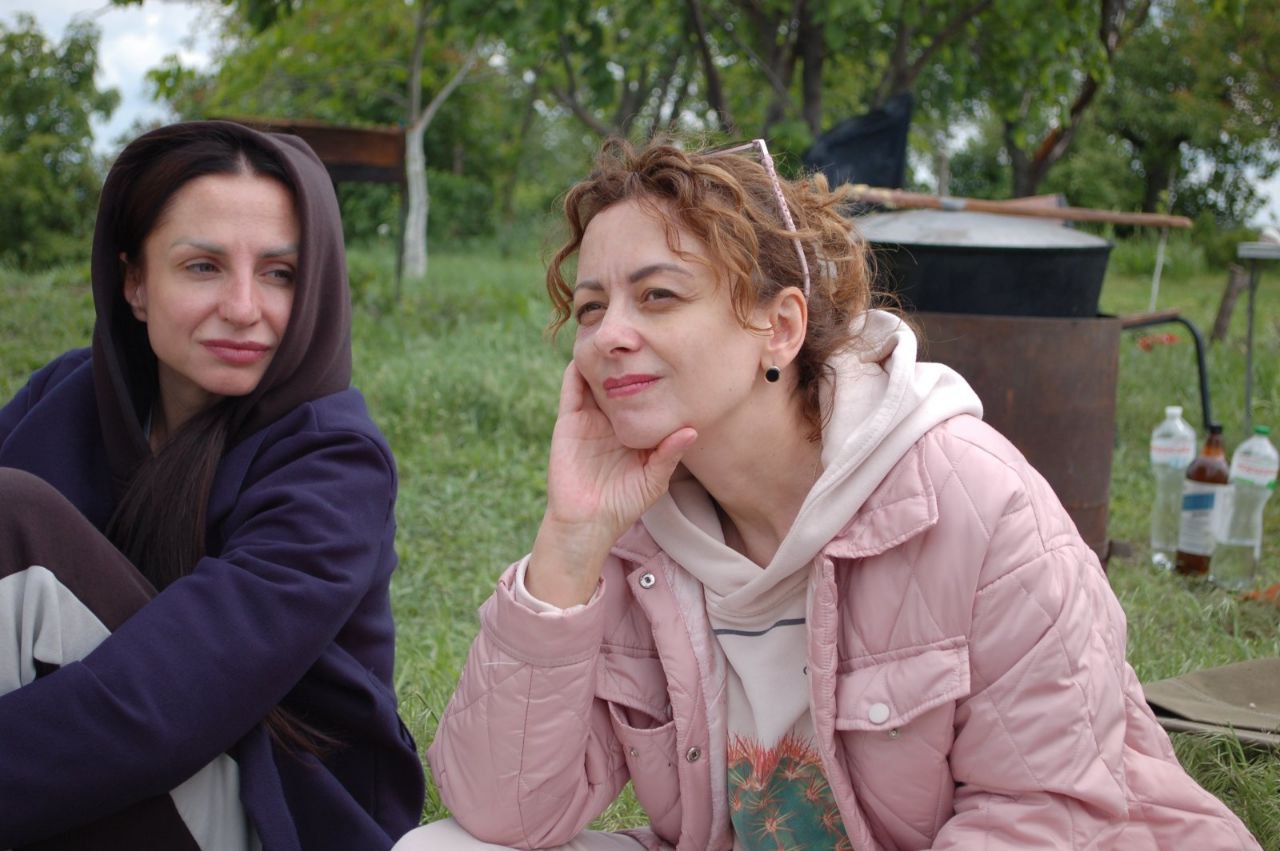
If you could address Polish readers, what would you say about Ukrainians today?
– We must not allow others to define who we are.
Ukrainians and Poles are so close in spirit and beliefs that we should call each other brothers.
Your support for our citizens in the first weeks of the war is worth every word of gratitude in the world.
We are together. And when we are together — we are strong.
This material was prepared for the Ukrainian-Polish media platform “upmp.news” as part of the series “Women Who Hold the Home Front.”

